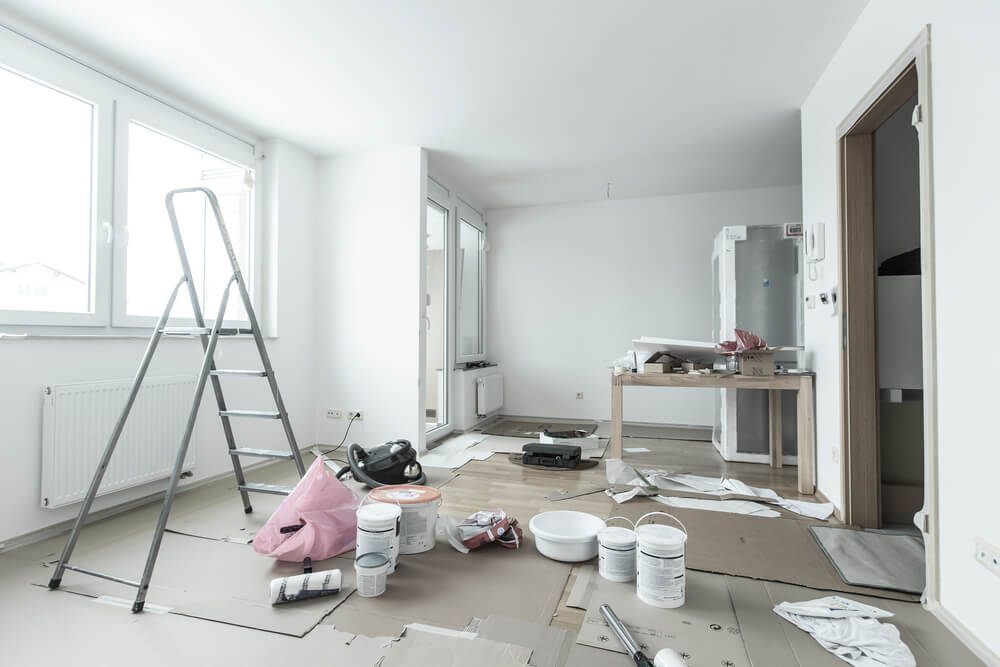Scuffed flooring, peeling wallpaper, flickering lights and that toilet that just can’t seem to get it all down – perhaps it’s finally time to renovate the house. It can be a daunting task if you’ve never done it before, explains VDL Construction, a licensed building company in London. How long will you have to live among the rubble until it’s all complete? That depends on several factors including:
- What is the size of your house/how many rooms do you intend to renovate?
- What is the extent of renovations you intend to complete?
- How much free time do you have for Do-It-Yourself projects?
- Will you hire a contractor?
- Have you thoroughly planned each step and prepared accordingly?
- What types of permits will you need, if any?
- Do you anticipate the weather cooperating for any outdoor work?
- Are you living in the house you want to renovate (vs. “flipping” elsewhere)?
How Many Rooms Will You Renovate and to What Extent?
House Beautiful provides estimated completion times for various rooms in your house. It suggests that the time required for each room can vary from a few weeks to a few months. For example, a small half-bath could be completed in a few days, especially if you have additional crew to assist you.
Replacing the toilet, sink, a couple of cabinets, installing new light fixtures and a fresh linoleum floor could, in theory, be done in a weekend. On the other hand, your kitchen will likely take more time as there are multiple appliances, several more cabinets and light fixtures, and you really want that heated floor for the cold winter nights.
Also, you’d really prefer the stove over there where the refrigerator is, and an additional sink in an island counter. It would probably benefit you to hire assistance if you don’t have a lot of free time because the kitchen is hard to live without. House Beautiful suggests that a kitchen may take anywhere from three weeks to three months. Custom cabinets and counter-tops can add a big chunk of time to your planning.
Will You Go It Alone, Or Hire Help?
I’m always one to hesitate to spend money on the help that I believe I’d be better off learning and doing myself. With an extensive renovation, however, I would certainly consider bringing in the professionals.
One thing a contractor can do for you is to set up a firm schedule of planned work. The contractor does this work all the time, so they have a more realistic idea of the time frames in which you will be working. For instance, you may love those cabinets you see in the catalog, and the contractor may inform you that because they are custom-made overseas, they will take a few months to arrive.
Suddenly the locally-built cabinets on the next page look ever so inviting. Contractors also tend to have a grasp on the availability of other workers you will need (e.g. plumber, electrician, etc.). You can let them do the work of coordinating the people and timing.
If, however, you choose to go it alone, there are sample timelines and schedules available online to help you plan, like this one from 1-2-3 Flip, and these time-line templates from Smartsheet.
This is a highly recommended part of the process, both setting a schedule of work to be completed, as well as making sure everything is prepared appropriately. Don’t make the mistake my old neighbor did and rip out your entire kitchen and only bathroom all at the same time (that is, all your water sources) – as your neighbor,
I don’t want you coming over to do your dishes and use my toilet repeatedly throughout the process! Another aspect to keep in mind if you decide to DIY is how much time you will want to spend on the project. Do you have a full-time job and intend to do all the work after-hours?
Don’t be too aggressive with your time, be sure to schedule a happy hour for yourself here and there or you could become overwhelmed and resentful of the work.
Does Any Of Your Planned Work Require a Permit?
Here’s another great benefit of hiring a contractor – they will likely be aware of any building permits you may require, and go through the applying process for you. Big changes, like adding or removing walls, significant electrical or plumbing work, and partial demolition (structural change) will require a permit, while smaller changes like painting, cabinets, and flooring do not. You can read more about permits on Nolo.com to get a better understanding of whether you need them.
Your Flop or a Flip?
There seems to be a craze these days toward house flipping – buying up project houses and renovating them in order to sell for profit. And profit they sure can earn! Whether or not you will be living in the house that you are renovating can make a big difference on your timeline as well.
If you are able to leave the work behind and go home each day, you may feel more inclined to leave the workspace just that, workspace. If you have to wake up to the mess each day, you may take more time to straighten things out before going to bed.
Home Flipping Academy has a lot of helpful information when it comes to flipping homes, and it suggests that renovations can last anywhere from two to 12 months, depending on the extent.
What are you waiting for then? Get out your planner and make a list of the what, where, who and when! And no, you’re not crazy for suddenly dreaming of living in a tiny house!

